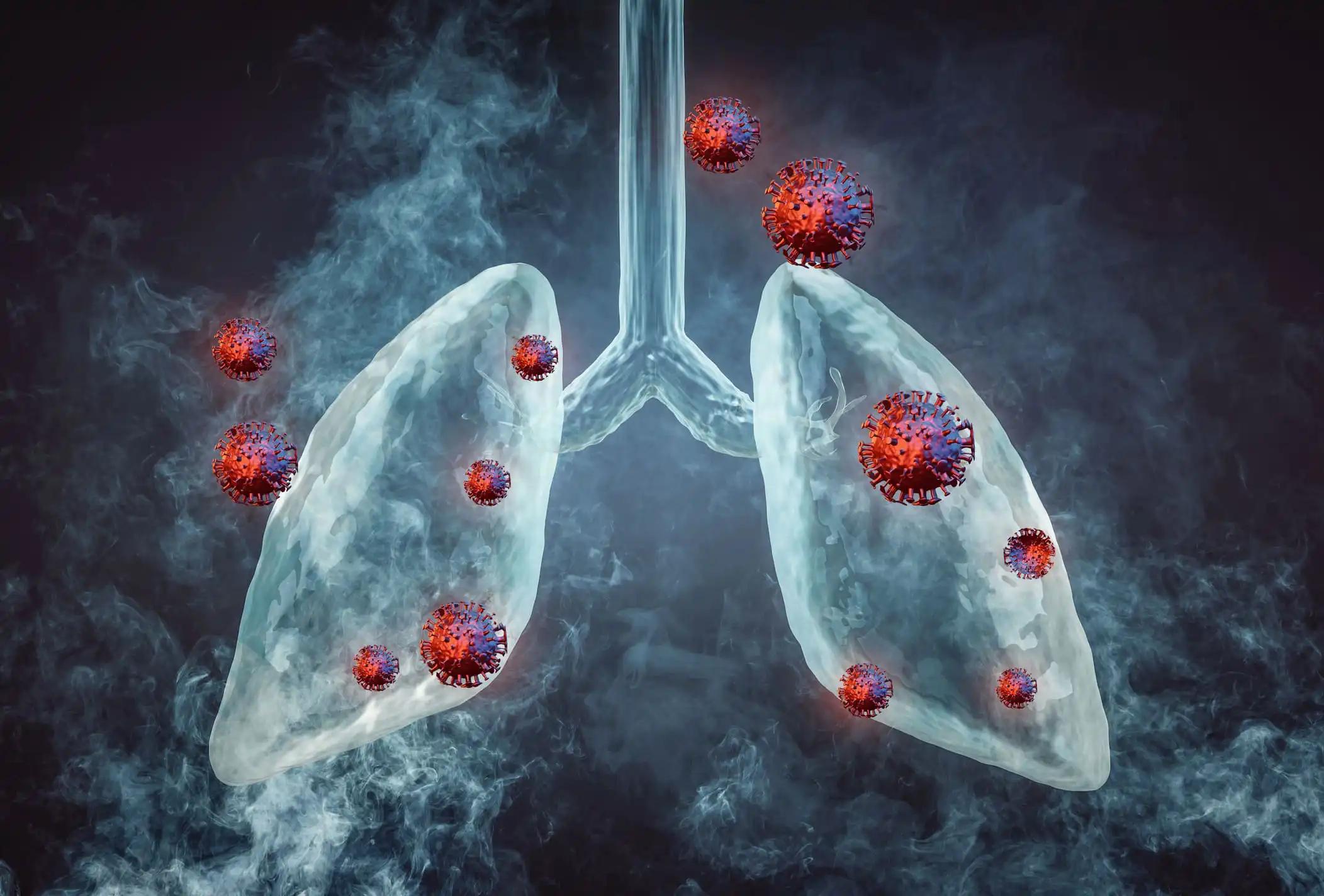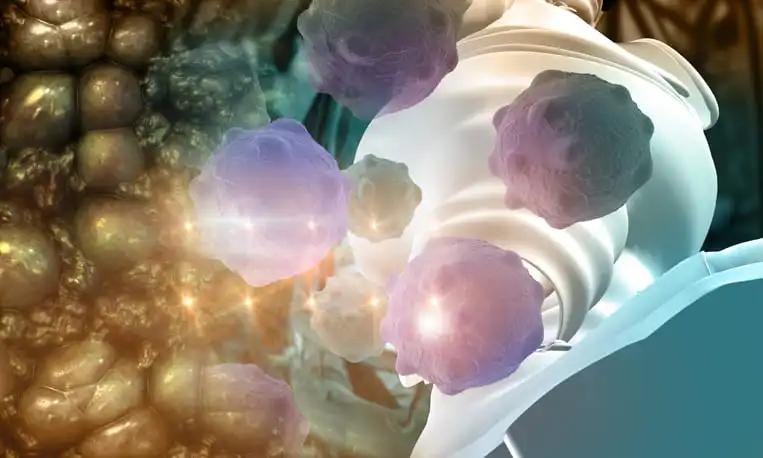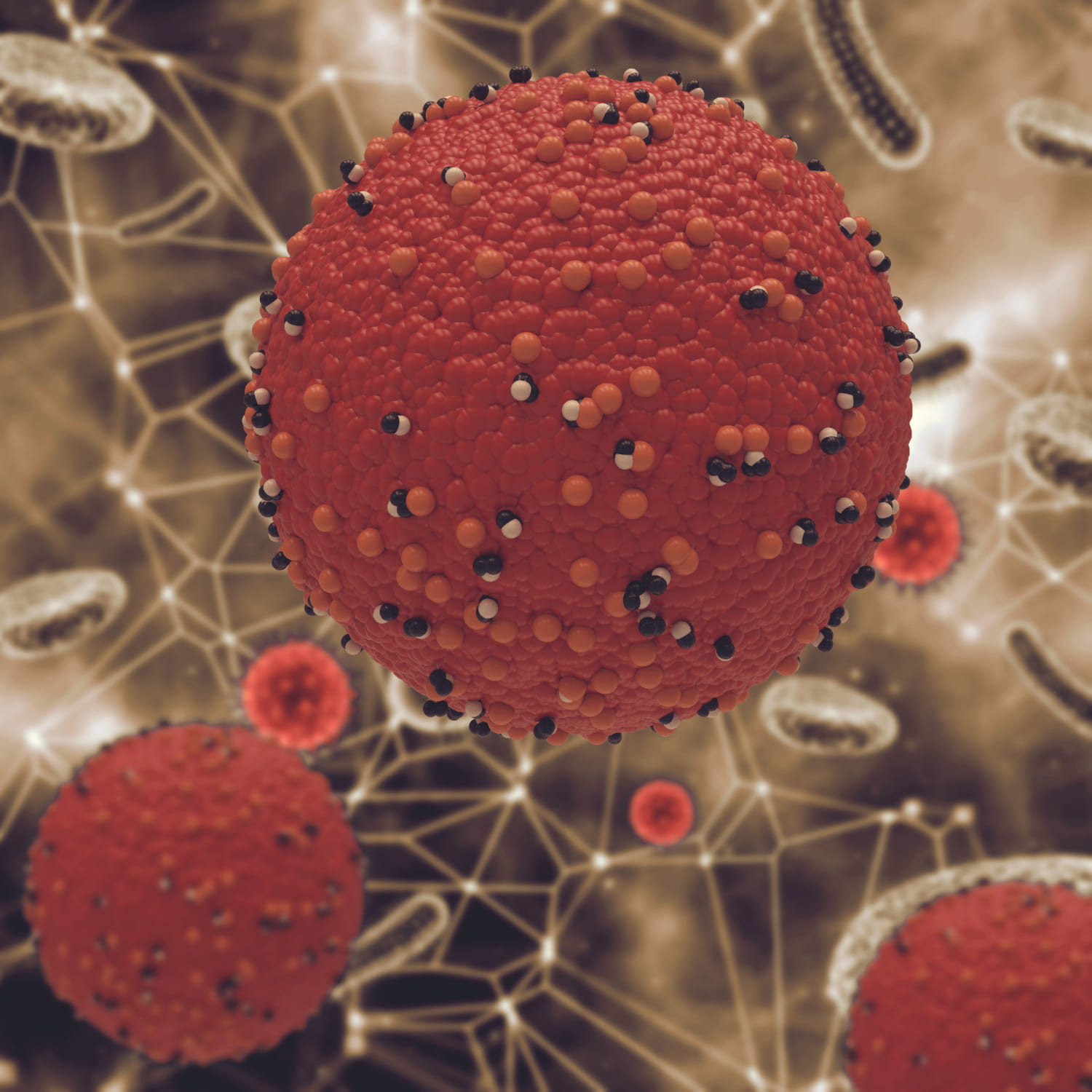KEY TAKEAWAYS
- The association between irAEs and atezolizumab efficacy in patients with advanced NSCLC was evaluated in a pooled data analysis from 3 phase 3 ICI studies.
- Participants in the studies were chemotherapy-naive adults with stage IV nonsquamous NSCLC.
- Atezolizumab-containing regimens were associated with more prolonged overall survival in patients with mild to moderate irAEs compared to those without irAEs.
- The analysis used a time-dependent Cox model and landmark analyses to estimate the overall survival hazard ratio.
- These findings support using first-line atezolizumab-containing regimens for advanced nonsquamous NSCLC.
Using combined data from 3 phase 3 ICI studies, researchers analyzed the correlation between irAEs and the efficacy of atezolizumab in patients with advanced NSCLC. Phase 3 multicenter, open-label, randomised IMpower130, IMpower132, and IMpower150 clinical trials evaluating the effectiveness and safety of atezolizumab in conjunction with chemotherapy and immunotherapy. Adults with stage IV nonsquamous NSCLC who had never received chemotherapy participated. These retrospective investigations occurred in February 2022.
Patients who met the inclusion criteria were randomly assigned as follows: 2:1 to receive atezolizumab with carboplatin plus nab-paclitaxel or chemotherapy alone (IMpower130); 1:1 to receive atezolizumab with carboplatin or cisplatin plus pemetrexed, or chemotherapy alone (IMpower132); and 1:1:1 to receive atezolizumab plus bevacizumab plus carboplatin and paclitaxel, or at (IMpower150).
Treatment (atezolizumab-containing vs control), irAE status (with vs without), and highest irAE grade were compared between IMpower130 (March 15, 2018), IMpower132 (May 22, 2018), and IMpower150 (September 13, 2019) in a pooled analysis (1-2 vs 3-5). For immortal bias correction, we estimated the HR of overall survival using a time-dependent Cox model and landmark analyses of irAE occurrence at 1, 3, 6, and 12 months after baseline (OS).
Among the total of 2,503 individuals randomly assigned, 1577 were given atezolizumab, and 926 were given a placebo. Patients in the atezolizumab arm and the control arm had similar demographics, with a mean (SD) age of 63.1 (9.4) and 63.0 (9.3) years and 950 (60.2%) and 569 (61.4%) were male. Patients who experienced irAEs (n = 753, atezolizumab; n = 289 controls) and those who did not (n = 824, atezolizumab; n = 637 controls) had comparable baseline characteristics.
Patients who experienced irAEs of grades 1 and 2 and those who experienced irAEs of grades 3 and 5 (each vs those without irAEs) had hazard ratios (HRs) for overall survival (OS) of 0.78 (0.65-0.94) and 1.25 (0.90-1.72), 0.74 (0.63-0.87) and 1.23 (0.93-1.64), 0.77 (0.65-0.90) and 1.1 (0.81-1.42), and 0.72 (0.59-0.89) and 0.87 (0.61-1.25), respectively in the atezolizumab arm at 1, 3, 6, and 12 months. Results and Significance Those with mild to moderate irAEs had a longer OS than those without irAEs in this meta-analysis of 3 randomised clinical trials. These results lend even more credence to the idea that atezolizumab-containing regimens should be used as frontline therapy for advanced nonsquamous NSCLC.
Source: https://jamanetwork.com/journals/jamaoncology/fullarticle/2801588
Clinical trial: https://clinicaltrials.gov/ct2/show/NCT02657434
Socinski MA, Jotte RM, Cappuzzo F, et al. Association of Immune-Related Adverse Events With Efficacy of Atezolizumab in Patients With Non–Small Cell Lung Cancer: Pooled Analyses of the Phase 3 IMpower130, IMpower132, and IMpower150 Randomized Clinical Trials. JAMA Oncol. Published online February 16, 2023. doi:10.1001/jamaoncol.2022.7711









